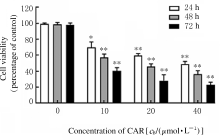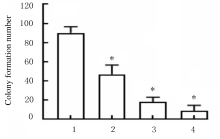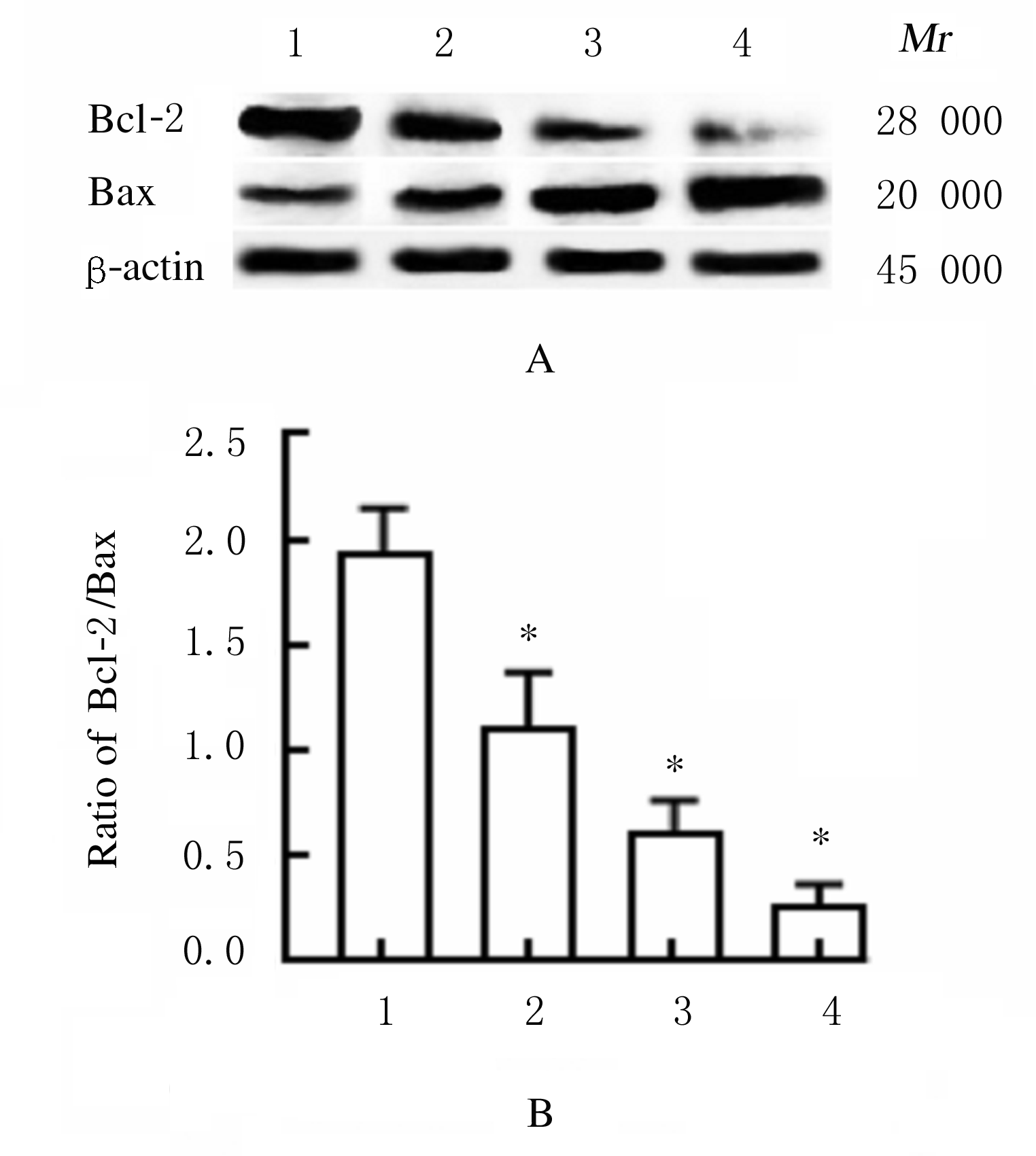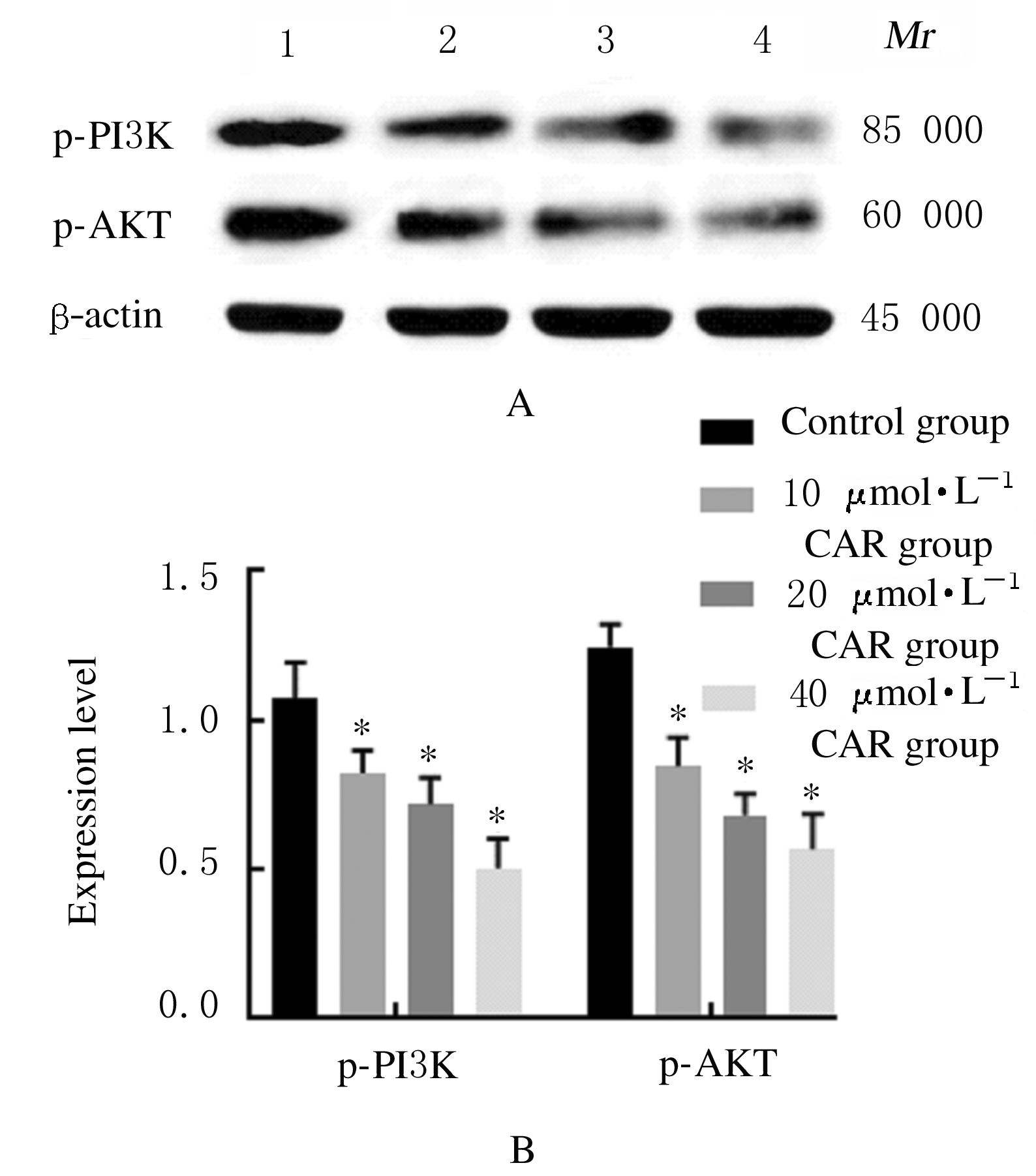| 1 |
SMALL W J R, BACON M A, BAJAJ A, et al. Cervical cancer: a global health crisis[J]. Cancer, 2017, 123(13): 2404-2412.
|
| 2 |
LIN A J, DEHDASHTI F, GRIGSBY P W. Molecular imaging for radiotherapy planning and response assessment for cervical cancer[J]. Semin Nucl Med, 2019, 49(6): 493-500.
|
| 3 |
JAMES S, APARNA J S, PAUL A M, et al. Cardamonin inhibits colonic neoplasia through modulation of MicroRNA expression[J]. Sci Rep, 2017, 7(1): 13945.
|
| 4 |
JIN J M, QIU S P, WANG P, et al. Cardamonin inhibits breast cancer growth by repressing HIF-1α-dependent metabolic reprogramming[J]. J Exp Clin Cancer Res, 2019, 38(1): 377.
|
| 5 |
LI Y T, QIN Y, YANG C S, et al. Retraction Note: Cardamonin induces ROS-mediated G2/M phase arrest and apoptosis through inhibition of NF-κB pathway in nasopharyngeal carcinoma[J]. Cell Death Dis, 2019, 10(4): 289.
|
| 6 |
JIA D Y, TAN Y, LIU H J, et al. Cardamonin reduces chemotherapy-enriched breast cancer stem-like cells in vitro and in vivo [J]. Oncotarget, 2016, 7(1): 771-785.
|
| 7 |
HOU G C, YUAN X, LI Y, et al. Cardamonin, a natural chalcone, reduces 5-fluorouracil resistance of gastric cancer cells through targeting Wnt/β-catenin signal pathway[J]. Invest New Drugs, 2020, 38(2): 329-339.
|
| 8 |
GLOBAL BURDEN OF DISEASE CANCER COLLABORATION, FITZMAURICE C, ALLEN C, et al. Global, regional, and national cancer incidence, mortality, years of life lost, years lived with disability, and disability-adjusted life-years for 32 cancer groups, 1990 to 2015: a systematic analysis for the global burden of disease study[J]. JAMA Oncol, 2017, 3(4): 524-548.
|
| 9 |
COHEN P A, JHINGRAN A, OAKNIN A, et al. Cervical cancer[J]. Lancet, 2019, 393(10167): 169-182.
|
| 10 |
DE CASTRO C C, COSTA P S, LAKTIN G T, et al. Cardamonin, a schistosomicidal chalcone from Piperaduncum L. (Piperaceae) that inhibits Schistosoma mansoni ATP diphosphohydrolase[J]. Phytomedicine, 2015, 22(10): 921-928.
|
| 11 |
GONÇALVES L M, VALENTE I M, RODRIGUES J A. An overview on cardamonin[J]. J Med Food, 2014, 17(6): 633-640.
|
| 12 |
NIU P G, SHI D H, ZHANG S S, et al. Cardamonin enhances the anti-proliferative effect of cisplatin on ovarian cancer[J]. Oncol Lett, 2018, 15(3): 3991-3997.
|
| 13 |
XUE Z G, NIU P G, SHI D H, et al. Cardamonin inhibits angiogenesis by mTOR downregulation in SKOV3 cells[J]. Planta Med, 2016, 82(1/2): 70-75.
|
| 14 |
NIU P G, ZHANG Y X, SHI D H, et al. Cardamonin inhibits metastasis of lewis lung carcinoma cells by decreasing mTOR activity[J]. PLoS One, 2015, 10(5): e0127778
|
| 15 |
RADOGNA F, DICATO M, DIEDERICH M. Cancer-type-specific crosstalk between autophagy, necroptosis and apoptosis as a pharmacological target[J]. Biochem Pharmacol, 2015, 94(1): 1-11.
|
| 16 |
WANG G Y, ZHANG T, SUN W, et al. Arsenic sulfide induces apoptosis and autophagy through the activation of ROS/JNK and suppression of Akt/mTOR signaling pathways in osteosarcoma[J]. Free Radic Biol Med, 2017, 106: 24-37.
|
| 17 |
BURGESS D J. Apoptosis: Refined and lethal[J]. Nat Rev Cancer, 2013, 13(2): 79.
|
| 18 |
LIAO N C, SHIH Y L, CHOU J S, et al. Cardamonin induces cell cycle arrest, apoptosis and alters apoptosis associated gene expression in WEHI-3 mouse leukemia cells[J]. Am J Chin Med, 2019, 47(3): 635-656.
|
| 19 |
ZHOU B H, TAN P P, JIA L S, et al. PI3K/AKT signaling pathway involvement in fluoride-induced apoptosis in C2C12 cells[J]. Chemosphere, 2018, 199: 297-302.
|
| 20 |
LI D D, LUO Z, CHEN G H, et al. Identification of apoptosis-related genes Bcl2 and Bax from yellow catfish Pelteobagrus fulvidraco and their transcriptional responses to waterborne and dietborne zinc exposure[J]. Gene, 2017, 633: 1-8.
|
| 21 |
CAO H W, FENG Y G, CHEN L, et al. Lobaplatin inhibits prostate cancer proliferation and migration through regulation of BCL2 and BAX[J]. Dose Response, 2019, 17(2): 1559325819850981.
|
| 22 |
FENG F B, QIU H Y. Effects of Artesunate on chondrocyte proliferation, apoptosis and autophagy through the PI3K/AKT/mTOR signaling pathway in rat models with rheumatoid arthritis[J]. Biomed Pharmacother, 2018, 102: 1209-1220.
|
| 23 |
李 翔, 张 斌, 马 竟, 等. Akt抑制剂MK2206对舌鳞癌TCA-8113细胞增殖和凋亡的影响及其作用机制[J]. 吉林大学学报(医学版), 2014, 40(3): 616-620.
|
| 24 |
ZHOU X S, ZHOU R, LI Q W, et al. Cardamonin inhibits the proliferation and metastasis of non-small-cell lung cancer cells by suppressing the PI3K/Akt/mTOR pathway[J]. Anticancer Drugs, 2019, 30(3): 241-250.
|
 ),Ying PAN3(
),Ying PAN3( )
)











